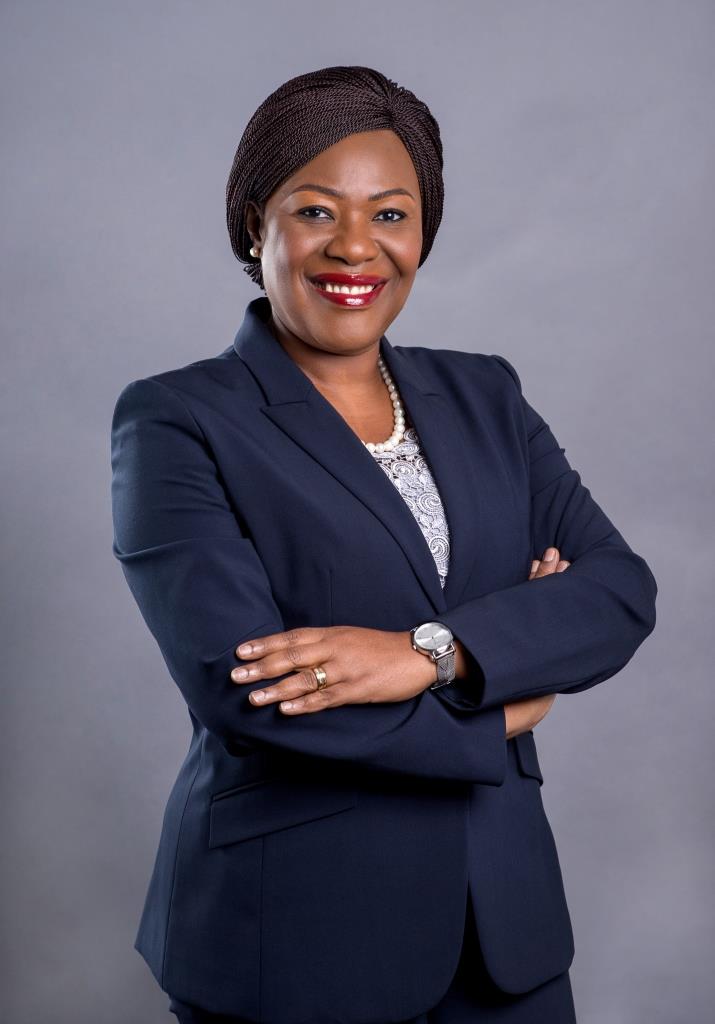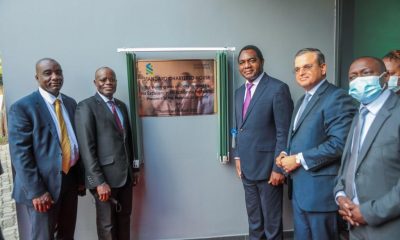Banking
Banking on the Future of Work

By Millie Clarke
The disruption of technology is revolutionising industries across many levels. As businesses evolve during the unprecedented revolution in the workplace, appropriate operating models must be put in place to meet the continuous demands of clients and the world around us. The future workforce must be equipped with the necessary tools to allow them to easily adapt to the ever-changing world that will require digital skills, organisational adaptability and a different kind of leadership at all levels.
The banking industry specifically, has faced significant disruption from changes in client expectations, geopolitical landscape shifts and development of artificial intelligence (AI). There is often anxiety linked to disruption, as it cannot always be predicted and organisations need to be ready to take advantage of new developments now for the future.
To remain competitive, organisations will need to retool their structures and their approaches to work to make use of the new technologies with full effect. Redesigned business structures and processes with a new focus on talent must be looked at as a priority.
Research suggests that through 2030, the time spent using advanced technological skills will increase by 50 percent in the United States and by 41 percent in Europe, with the fastest rise in the need for advanced IT and programming skills1.
Additionally, automation will accelerate the shift in career skills with an increasing demand for technological abilities, while other skills such as, basic cognitive and manual skills will be less in demand. Data scientists, agile developers, engineers and scrum maters will become important in the new world of work. Those who can work across functions and businesses will be more valuable.
At Standard Chartered, we believe to have a competitive advantage with a future fit workforce we need to embrace digitisation and incorporate advanced technologies into the workstream. We have taken proactive steps to help drive the growth of the business by embracing these changes early on and promote innovation across all parts of the Bank, in our drive to make banking simpler, faster and more convenient for our customers and to stay relevant in our markets. We are experimenting with disruptive business models that create optionality for the Bank, including investing in fintech’s and start-ups outside the Bank, and establishing new partnerships and solutions that have the potential to change how we approach and think about banking.
Most banks are looking at replacing their legacy systems to ensure the new technology will improve their operating effectiveness and improve the customer experience. We see a lot of improvements around account opening, mortgage payments, new hire processing – even IPOs are being done by algorithm! Automation will have an impact on the way we deliver and consequently our workforce and talent strategies.
Looking at what lays ahead, I foresee three challenges facing the role of Human Resources (HR) in developing a talent strategy for the future of work. The critical questions we need to ask ourselves are:
How do we identify the skills needed to compete in the new world?
How do we prepare for the technology disruption and re-train our existing staff to be ready?
How do we attract digital talent, knowing that we have to compete with other industries for this same talent pool?
We have invested heavily in our ‘People Strategy’ to ensure that we harness our unique individual strengths which build the organisation. Newly developed HR technologies and tools are used within Standard Chartered to create a consumer grade experience with HR through mobile friendly and online portals. The training of more than 1,200 senior executives took place, towards positively transforming the culture of the Bank, focusing on supporting our employees and enabling them to become more comfortable with innovation and the development of new ideas, even if these ideas were not successful. We are retraining our staff on agile to ensure we remain competitive in the new world of work. Through our on-line learning platform staff can choose a varied number of programmes and develop themselves at their own leisure.
The scale, scope and complexity of technology and its transformative powers is something organisations are still yet to fully comprehend, especially when it comes to the future of work and what the modern workplace will look like. However, it is important for banks to evolve as rapidly as technology – at least, they must try to. It is important for an organisation to be agile and continue developing to hold a competitive advantage and remain self-sustaining.
McKinsey Global Institute https://www.mckinsey.com/featured-insights/future-of-work/skill-shift-automation-and-the-future-of-the-workforce
Banking
Public Offer: Sterling Holdco Allots 13.812 billion Shares to 18,276 Shareholders

By Aduragbemi Omiyale
Sterling Financial Holdings Company Plc has allotted shares from its public offer of 2025 to investors with valid applications.
The allotment follows the earlier receipt of final approval from the Central Bank of Nigeria (CBN) and the recent clearance by the Securities and Exchange Commission (SEC).
In September 2025, the financial institution offered for sale about 12,581,000,000 ordinary shares of 50 kobo each at N7.00 per share in public offer.
However, the exercise received wide participation from the investing public, with the company getting 18,280 applications for 16,839,524,401 ordinary shares valued at approximately N117.88 billion.
Following a thorough verification process, valid applications were received from 18,276 shareholders for a total of 13,812,239,000 ordinary shares, representing a subscription level of 109.79 per cent and reflecting sustained confidence in Sterling Holdco’s strategic direction, governance, and long-term growth prospects.
The firm approached the capital market for additional funds for the recapitalisation of its two flagship subsidiaries, Sterling Bank and The Alternative Bank.
The capital injection will support the commencement of full operations and contribute to the group’s revenue diversification objectives.
In line with the guidelines set out in the offer prospectus, Sterling Holdco confirmed that all valid applications will be allotted in full. Every investor who complied with the terms of the offer will receive all the shares for which they applied.
A very small number of applications were not processed or were partially rejected due to non-compliance with the offer terms, including duplicate payments and failure to meet the minimum subscription requirement of 1,000 units or its multiples, as stipulated in the offer documents.
The group ensures a seamless post-offer process, with refunds for excess or rejected applications, along with applicable interest, to be remitted via Real Time Gross Settlement or NIBSS Electronic Funds Transfer directly to the bank accounts detailed in the application forms.
Simultaneously, the electronic allotment of shares has be credited to successful shareholders’ accounts with the Central Securities Clearing System (CSCS) on February 17, and for applicants who do not currently have CSCS accounts, their allotted shares will be temporarily held in a registrar-managed pool account pending the submission of their completed account opening documentation to Pace Registrars Limited, after which the shares will be transferred to their personal CSCS accounts.
Banking
CBN Governor Seeks Coordinated Digital Payment Reforms

By Modupe Gbadeyanka
To drive inclusive growth, strengthen financial stability, and deepen global financial integration across developing economies, there must be coordinated reforms in digital cross-border payments.
This was the submission of the Governor of the Central Bank of Nigeria (CBN), Mr Olayemi Cardoso, at the G‑24 Technical Group Meetings in Abuja on Thursday, February 19, 2026.
According to him, high remittance costs, settlement delays, fragmented systems, and heavy compliance burdens still limit the participation of households and Micro, Small and Medium Enterprises (MSMEs) in global trade.
The central banker emphasised that efficient payment systems are essential for economic inclusion, highlighting that global remittance corridors still incur average costs above 6 per cent, with settlement delays of several days, excluding millions from modern economic activity.
Mr Cardoso cautioned that while digital payments present significant opportunities, they also carry risks such as currency substitution, weakened monetary transmission, increased FX volatility, capital-flow pressures, and regulatory fragmentation.
The G-24 TGM 2026, themed Mobilising finance for sustainable, inclusive, and job-rich transformation, convened global financial stakeholders to advance the modernisation of finance in support of emerging and developing economies.
The CBN chief reaffirmed Nigeria’s commitment to working with G-24 members, the IMF, the World Bank Group, and other partners to build a more inclusive, resilient, and development-oriented global financial architecture.
“We have strengthened our AML/CFT frameworks in line with FATF guidelines, requiring strict dual-screening of cross-border transactions to mitigate risks.
“To deepen regional integration, the CBN introduced simplified KYC/AML requirements for low-value cross-border transactions to encourage broader participation in PAPSS, easing processes for Nigerian SMEs and enabling faster intra-African trade payments.
“We have also embraced fintech innovation through our Regulatory Sandbox, allowing payment-focused fintechs to test secure, instant cross-border solutions under close CBN supervision,” he disclosed.

Banking
Unity Bank, Providus Bank Merger Awaits Final Court Approval

By Modupe Gbadeyanka
The merger and business combination between Unity Bank Plc and Providus Bank Limited remains firmly on course, a statement from one of the parties disclosed.
According to Unity Bank, there is no iota of truth in reports in certain sections of the media suggesting that the merger process had stalled, as the transaction remains firmly on track.
It was disclosed that the necessary regulatory steps have been completed, but only a few other steps to finalise the transaction, especially the final court sanction.
There had been speculations that both lenders may not meet the new minimum capital requirement of the Central Bank of Nigeria (CBN) before the March 31, 2026, deadline.
However, it was noted that the combined capital base of Unity Bank and Providus Bank exceeds N200 billion, which is the minimum requirement to retain a national banking licence under the CBN’s recapitalisation framework.
When completed, the Unity-Providus merger is expected to deliver a stronger, more competitive, and customer-centric financial institution — one with the scale, innovation, and reach to redefine the retail and SME banking landscape in Nigeria.
“The merger with Providus Bank significantly enhances our capital base, operational capacity, and strategic positioning.
“We are confident that the combined institution will be better equipped to support economic growth and deliver innovative financial solutions across Nigeria,” the chief executive of Unity Bank, Mr Ebenezer Kolawole, stated.
Recall that a few months ago, shareholders authorised the merger between the two entities at Court-Ordered Meetings. They also adopted the scheme of merger at their respective Extraordinary General Meetings (EGMs) in September 2025,
The central bank also backed the merger, with a pivotal financial accommodation to support the transaction. The merger also received a further boost with a “no objection” nod from the Securities and Exchange Commission (SEC).
The regulatory approvals form part of broader efforts to strengthen the resilience of Nigeria’s banking system, reinforce capital adequacy across the sector, and mitigate potential systemic risks.
The development positions the combined entity among the 21 banks that have satisfied the apex bank’s new capital threshold for national banking operations.
-

 Feature/OPED6 years ago
Feature/OPED6 years agoDavos was Different this year
-
Travel/Tourism10 years ago
Lagos Seals Western Lodge Hotel In Ikorodu
-

 Showbiz3 years ago
Showbiz3 years agoEstranged Lover Releases Videos of Empress Njamah Bathing
-

 Banking8 years ago
Banking8 years agoSort Codes of GTBank Branches in Nigeria
-

 Economy3 years ago
Economy3 years agoSubsidy Removal: CNG at N130 Per Litre Cheaper Than Petrol—IPMAN
-

 Banking3 years ago
Banking3 years agoSort Codes of UBA Branches in Nigeria
-

 Banking3 years ago
Banking3 years agoFirst Bank Announces Planned Downtime
-

 Sports3 years ago
Sports3 years agoHighest Paid Nigerian Footballer – How Much Do Nigerian Footballers Earn




















